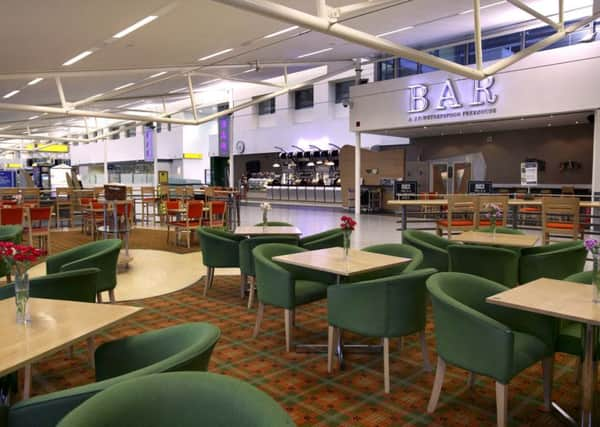Comment: The height of bad behaviour on holiday


As we head off on our holidays there’s a British staple many of us will encounter at the airport – a group in the airport bar enjoying a boozy start to their holiday. Sometimes it’s even a pint-shaped breakfast session. Even if we don’t go that far, a tipple before take-off or a glass of wine at 37,000 feet are seen by many of us as one of the pleasures of air travel. However, when one drink becomes several, airlines are seeing the sort of anti-social behaviour that you would find in the average UK town centre on a Saturday night – and it’s on the increase.
When the resulting behaviour is happening six miles up, in confined cabins, with potential life-threatening consequences to 200 plus other passengers, and no option of evicting the culprit from the premises, it becomes less of an acceptable indulgence.
Advertisement
Hide AdAdvertisement
Hide AdThe Civil Aviation Authority, which looks at UK figures, reports that there were 114 cases of disruptive passengers recorded last year – and these are attributed ‘mostly’ to over-consumption of alcohol. This figure is a substantial increase from 85 in 2013; 47 in 2012; and 39 in 2011 on British registered aircraft. On face value that appears to be almost a three-fold increase in three years. However there has been a concurrent increase in the total number of passengers travelling by air over that period so the figures must be taken in context. These figures are also likely to be the tip of the iceberg when it comes to how many passengers were simply “drunk”.
However, over the same period, the incidents recorded by the Federal Aviation Administration for the US were just seven higher than the UK – a record low and a staggering comparison – which may have something to do with an enduring British drinking and stag-partying culture.
Many of the UK cases involve well-oiled passengers, or groups of passengers, whose disruptive behaviour pushes the boundaries – smoking in the toilets, annoying fellow passengers, or damaging aircraft fixtures and fittings for example. However, some cases can be much more serious, with bomb threats and assaults on crew and passengers all becoming more frequent.
A recent reported case of “air rage” happened when a Ryanair flight from Latvia to Dublin had to be diverted when a man who had drunk too much stripped semi-naked and allegedly started throwing punches and tried to leave the aircraft in mid-air. Eventually, the man was restrained by crew and other passengers and then arrested on arrival in Denmark, where the pilot had decided to set down.
A need to reroute can cost an airline an estimated £40,000, and then there are the ubiquitous flight delay claims when the airline’s scheduling is affected. Of course, in today’s connected age, it wasn’t long before videos of that particular incident started appearing online and in this way, the reputational damage from such an incident can also be considerable.
From an insurer’s perspective, the risks from such 6-mile high activities are clear. Employer’s liability claims for crew members who have to deal with the culprits; public liability claims from other passengers, either due to assault or accidental injury. All against the backdrop of strict liability under the Montreal Convention.
Whilst airlines are good at training cabin crew to spot drunken passengers before they get on an aircraft, there is an abundance of opportunity and availability of alcohol before passengers reach the departure gate to engage in “preloading”, meaning that the on-board tipple is the final straw. The pressure is on for pubs, bars and restaurants in airports to play their part, working together with airlines and duty free providers.
Can the airports and airlines do more to address the issue? Undoubtedly so. Will they? Well, revenue may be the stumbling factor as alcohol is profitable, whether in the airport bars, premium lounges, duty free shops or in flight.
Advertisement
Hide AdAdvertisement
Hide AdIn other countries, such as China, tough sanctions have been drawn up to put disruptive passengers on a blacklist, banning them from flying.
For the moment however, the news that, in the face of rising incident rates, UK airports are being pressurised by the watchdog into imposing tougher restrictions on the sale of alcohol before boarding aircraft will be welcomed. As we take off for our summer breaks, any effort to rectify the upward trend of misconduct can only be good news for passengers, crew and insurers.
• Douglas Keir is a Glasgow partner at Weightmans (Scotland) LLP.